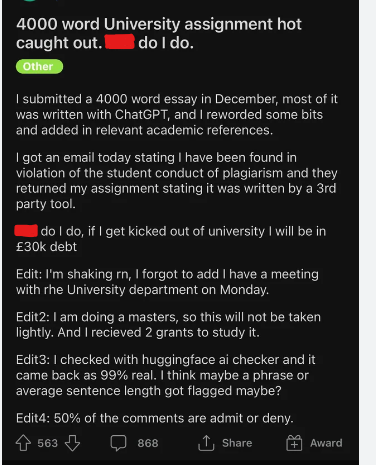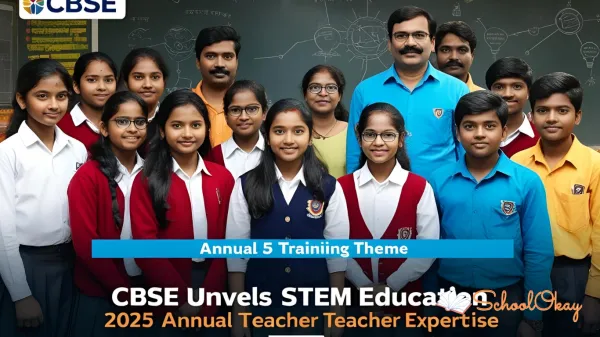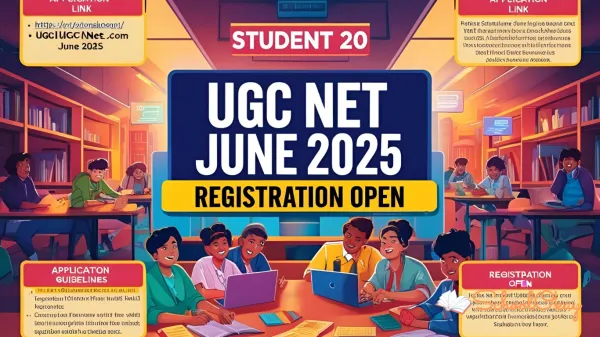How ChatGPT is going to affect the Future of Education
Here we have shared how ChatGPT is going to change future education and how ChatGPT is going to affect the future of dedication

ChatGPT (generative pre-trained transformer) is an AI-based learning model that can help students get any answer from school homework questions to getting ideas related to school projects and even food recipes making it one of the most advanced AI models currently.
To show you the power of ChatGPT, allow me to show what ChatGPT has to say about itself,
As a large language model, it has been trained on a massive amount of text data, enabling it to understand and produce natural language with high accuracy and fluency.
One of the key strengths of ChatGPT is its ability to contextualize information and generate relevant responses based on the input it receives. This makes it a powerful tool for information retrieval, education, and customer service, as it can provide users with the accurate and helpful information in a conversational manner.
Overall, the power of ChatGPT lies in its advanced natural language processing capabilities, which enable it to provide a more human-like and efficient way for users to interact with machines.
It has been developed by OpenAI, which uses supervised learning and reinforcement learning techniques which are a part of machine learning.
Over the past four years, they have been developing ChatGPT, there have been several versions, and this is GPT 3.5.
ChatGPT's Source Of Power.
ChatGPT is a text based AI tool that can generate information in just seconds! It can write articles, emails, video scripts, blog posts, codes and just anything you ask, from a song lyrics to some new business ideas!! pic.twitter.com/JgdxJZBAoz
— Ansh Mehra (@AnshMehraaa) December 29, 2022
Due to the way it has been made. It can learn from past experiences (in other words, it learns from the previous data that was available on the web), just like us humans. It is a great example of reducing the line that distinguishes us humans and machines in the future.
When ChatGPT answers your questions, it is very difficult to identify if a human or the chatbot has written it. This is the Turing test, which Alan Turing developed as a test of a machine's ability to solve problems equivalent to a human.
There are many ways that students can use ChatGPT for their learning and for assignments, school projects and homework. Some problems can arise while using the chatbot for every question in your mind.
It is a mind-blowing technology which is free to use and has gathered users from all across the globe exponentially fast than any other platform.
One interesting piece of data shows how Netflix, Twitter, Facebook and Instagram gained their 1 million users after a long wait of 41 months, 24 months, 10 months, and 1 month respectively—on the other, ChatGPT gained this in only 5 days.
It works so well because it has been trained with massive data of text of questions and answers repetitively. It has derived its AI model from the analysis of human speech.
Currently, it does not use real-time world data, which means it cannot give answers after 2021 and has been trained with data available before that.
ChatGPT is so powerful and straightforward to use that it can replace many search engines, such as google, in some aspects as it will improve drastically in the coming years.
How Does ChatGPT Affect The user's Mind?
Try talking with ChatGPT, our new AI system which is optimized for dialogue. Your feedback will help us improve it. https://t.co/sHDm57g3Kr
— OpenAI (@OpenAI) November 30, 2022
ChatGPT places a lot of power in the hands of students, so it is up to them to use it wisely. As the saying goes, with great power comes great responsibility.
Students have begun to use ChatGPT to find answers to homework assignments, regardless of how long or difficult the assignment is. This can be advantageous because not all students have sufficient resources to obtain complete solutions.
ChatGPT can help solve a lot of problems like this where the student is incompatible with solving a given problem, and the AI works for you.
This is what innovation and revolution in education really are, as every student is unique and has a unique personality, so not everyone can get good grades or solve problems in subjects like social science or even science. ChatGPT can help mould solutions in your own way, which you understand.
Still, it can also work the opposite way by becoming a spoon-feeder to the student and reducing the chances of student growth. This will reduce the number of students using their brains for knowledge.
Using ChatGPT effectively
This is a frightening visual for me.
— Alex Hormozi (@AlexHormozi) January 10, 2023
The first dot is the amount of data Chat GPT 3 was trained on.
The second is what chat GPT 4 is trained on.
They are already doing demos.
It can write a 60,000 word book from a single prompt.
The only question I've had about AI… pic.twitter.com/DnAEMm60lh
A student can take an infinite number of benefits from ChatGPT, considering it knows what things to ask and how to ask them. ChatGPT, as said by Lex Fridman, has a very big neural network the way ChatGPT reasons, approximately 175 billion, which was just GPT 3, and it has been trained with human labels by giving the large dataset it had the direction to how the answer should look like.
We, as human beings, take reasoning for granted. For example, the most simple question how are you? This question doesn't require much, and we respond very easily, but if you ask a machine the same question, it won't be able to answer.
Let me rephrase the answer it couldn't answer before. Now tech has changed completely, and I am surprised by how few people know what ChatGPT is.
It is time that people get better at learning prompt engineering, as we need people who know how to manage the upcoming technologies. Therefore it is vital for you as a learner and the high-tech-based future.
Here are some ways that you need to keep in mind while using ChatGPT:
Many of us love writing long sentences of questions or want to explain what our question actually meant. The team ask a question, and the teacher often forgets the context of the question.
Google is a great way of learning, but how many of us know how to use it properly? We often write long sentences just like we are asking a human being.
ChatGPT is way better at getting instructions and providing an answer that may not be correct, but it will follow the instructions very strictly.
ChatGPT can follow up with your general answers and answer them, but Being specific with your questions can reduce the chances of misinterpretation of your text. This means the more you add the characteristics of what type of answer you need, the more it will listen to you.

Moreover, by adding characteristics, I don't mean extending the paragraph but removing the unnecessary parts and adding the qualities.
Asking unique questions can give different answers with similar meanings. This can be helpful if you want to gain more insight into the topic. Also very useful in preparation for exams.
ChatGPT can also be used to learn a new language or improve upon the one you already know. It can act as a great teacher and can be used to check your answers if you want to see whether your writing is grammatically correct.
Thus it is a bidirectional informational tool. ChatGPT can question and answer depending on what you want it to be.
ChatGPT is the real-world JARVIS or FRIDAY That we have seen in Iron man and marvel universe movies.
Drawbacks of ChatGPT in the present version
ChatGPT puts a mirror to humanity.
— Lex Fridman (@lexfridman) February 16, 2023
It is true that ChatGPT still needs a lot of work and time to become as popular as Google. ChatGPT is better than Google at understanding context, but it still needs a lot of work to help solve a problem.
There are a lot of dark sides to ChatGPT, but as for students, it doesn't mean we should discourage its use entirely.
Here are some ways to get a clear idea of how ChatGPT still doesn't have the perfect brain and where you should keep an eye on when using it.
Learning Process is Hampered
How to use ChatGPT to empower students and give them prompts they WANT to write about:
— New EdTech Classroom (@NewEdTechClass) December 16, 2022
Have students use ChatGPT themselves to type:
give me [MY FAVORITE TOPIC]-related writing prompts for a high school English class
See more in today's newsletter 👇 https://t.co/f5ACDcgtnZ pic.twitter.com/uVeGetye0y
ChatGPT can be time-consuming rather than time-saving, and it is unsuitable for new learners. There is a process for learning that every learner should find on their own.
Something that they discover by continuously failing and focusing so much so that their head start hurting. You miss an opportunity to discover yourself whenever you search for an answer in ChatGPT.
Yes, some answers can be relaxing as it saves a lot of time and gives you a great explanation on some topics that it finds easier, but that struggle with no understanding can be so much worth spending your time on.
That struggle nobody wants to discuss is necessary for you to grow. When I am learning something through a course that I want to do or I am excited about, I am very much motivated at the start. Still, I stop learning ahead after some time because there is a point when I don’t understand a single thing happening.
At that time, I became so frustrated that I started searching through other sources that I could find via which I could continue my learning.
This mostly happens because of a lack of patience inside me. And this is the most important part that is making many users shift towards asking questions to ChatGPT rather than research.
The solution to the above problem is to keep learning from the same source until you find yourself in trouble and then take a break. As we are humans, we cannot continuously keep working.
If this were possible, we would be surrounded by multiple Mark Zuckerberg and Steve Jobs.
Not enough understanding of the real situations.
ChatGPT still works on partial knowledge of the environment it works in. This means that it can't understand all the variables that are present in the real world.
It still works on the dataset and then tries to solve problems through that. It cannot work with real-time data. Data keeps changing every day.
Potential Bias
chatgpt with a serious political bias in coding issue pic.twitter.com/uxHpiUV8JJ
— ian bremmer (@ianbremmer) February 1, 2023
ChatGPT is trained on a large dataset with many different kinds of information. This can cause the model's answers to be biased. This can change how the chatbot acts. When asked about specific topics or political opinions, it is biased in a lot of it.
Sometimes it won't even answer the topic, although it will answer so much on some prompts that it is heavily biased.
For example, it might answer some questions openly but refuse to say anything about other topics. Students often care about things that aren't in their field, which can cloud their views.
Present ChatGPT is not Plagiarism free

ChatGPT uses the same dataset repeatedly, so it cannot always generate a unique answer. It may rephrase its answer or change some words, but when you check for plagiarism, you will always find it successful.
It uses the same dataset repeatedly, so it can't always be unique. There are ways to come around this problem, but not everyone knows.
It's straightforward to get distracted
As a student, there is no limit to how much you can ask on ChatGPT. This can make students go crazy and ask random questions, which won't help them learn anything.
The mind is the factory of thoughts which means if you let it go wild with it, that is, uncontrolled and unobserved, it will distract you.
This is why use ChatGPT very wisely, and the mind should never be given a chance to go wild unless you intentionally want it to happen; otherwise, you will never be able to focus on the given task.
Not being creative enough
ChatGPT is a chatbot made to come up with answers based on data it already has, so it may be unable to come up with creative or unique answers. This can make chats with ChatGPT boring or repetitive when talking to.
You might have seen it in writing poems or stories, but it isn't so powerful that it will produce a meaningful result. It is still a chatbot that isn't capable of thinking on its own. This might sound crazy depending on the perks and drawbacks we have discussed, but ChatGPT is working on a predictive text model, which is so good because it can recognize patterns and sequences.
One of the ways we can improve it is by giving it feedback on its answers. Yes, you can indeed give feedback, which is why it is a learning AI model.
In the end, ChatGPT is a very advanced tool, and there are many more tools that students can use to help them, but it is essential to use them.
The new AI era is similar to when the internet started becoming popular, and people were excited but didn't consider the opposing sides at that time.
Conclusion:
It is difficult to comment on the ChatGPT at this time because we are unsure of how it may develop and eventually take the place of human mental faculties. Because people are more than just sponges for information.
There is one more twist to this, which is that ChatGPT continues to learn from prior information rather than experiences. Because humans learn more from experiences than from theory, it is still difficult to predict if ChatGPT will be able to replace people.
Yet, future iterations of chatGPT will undoubtedly substitute for some elements and transform learning for practically everyone, including students.
Also read:
5 ways to study for long hours.
10 best decision-making books you can read this year.
10 free learning apps and websites for students.
Share and subscribe to the blog by email.





